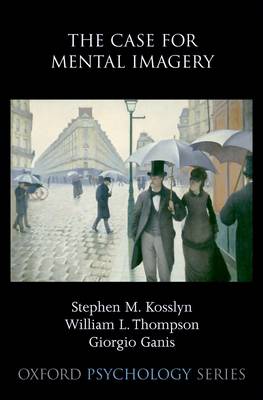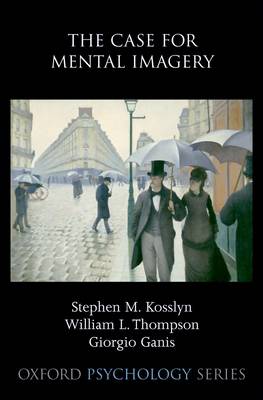
Bedankt voor het vertrouwen het afgelopen jaar! Om jou te bedanken bieden we GRATIS verzending (in België) aan op alles gedurende de hele maand januari.
- Afhalen na 1 uur in een winkel met voorraad
- In januari gratis thuislevering in België
- Ruim aanbod met 7 miljoen producten
Bedankt voor het vertrouwen het afgelopen jaar! Om jou te bedanken bieden we GRATIS verzending (in België) aan op alles gedurende de hele maand januari.
- Afhalen na 1 uur in een winkel met voorraad
- In januari gratis thuislevering in België
- Ruim aanbod met 7 miljoen producten
Zoeken
The Case for Mental Imagery
Stephen M. (Chair of the Department of Psychology, John Lindsley, William L. (, Psychology Department, Harvard University, USA) Th, Giorgio (Associate Profesor in Radiology, Associate Profesor in
€ 138,45
+ 276 punten
Omschrijving
Mental imagery has been a controversial topic in psychology. The major problem has been the inherently private nature of mental images. This book summarizes the arguments and positions, puts them in context, and shows how modern neuroscientific methods can illustrate the representational nature of mental imagery.
Specificaties
Betrokkenen
- Auteur(s):
- Uitgeverij:
Inhoud
- Aantal bladzijden:
- 260
- Reeks:
Eigenschappen
- Productcode (EAN):
- 9780195179088
- Verschijningsdatum:
- 23/03/2006
- Uitvoering:
- Hardcover
- Afmetingen:
- 237 mm x 162 mm
- Gewicht:
- 508 g

Alleen bij Standaard Boekhandel
+ 276 punten op je klantenkaart van Standaard Boekhandel
Beoordelingen
We publiceren alleen reviews die voldoen aan de voorwaarden voor reviews. Bekijk onze voorwaarden voor reviews.









